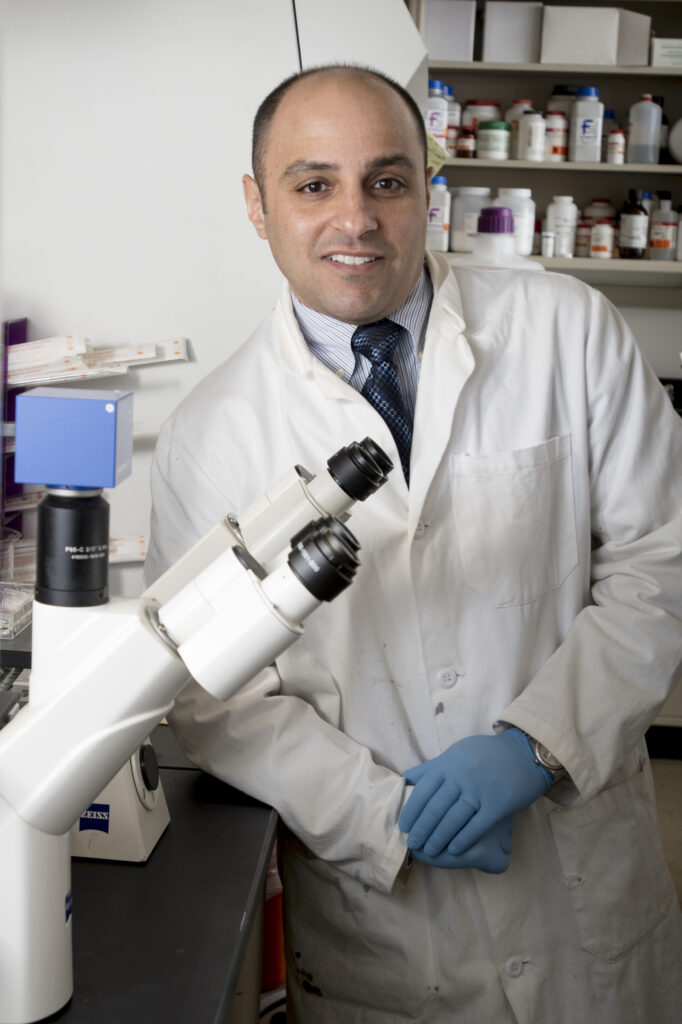 On Mercer University Week: We might need to change how we combat Parkinson’s Disease.
On Mercer University Week: We might need to change how we combat Parkinson’s Disease.
Nader Moniri, professor in the department of pharmaceutical sciences, determines if a new approach would be helpful.
Dr. Nader Moniri is an associate dean for research and professor of pharmaceutical sciences at Mercer University’s College of Pharmacy. His training has focused on molecular pharmacology and signal transduction of G protein-coupled receptors (GPCR), as well as the design and development of novel agents which modulate GPCR function. Current research interests include signal transduction, alternative signaling and design of functionally selective modulators of the prototypical GPCR, the ß2-adrenergic receptor. Specifically, this work seeks to characterize mechanisms of ß2-receptor mediated generation of intracellular reactive oxygen species, formation of which his laboratory has recently shown to be indispensable for receptor function. Dr. Moniri’s laboratory is also interested in characterization of neuro-endocrine GPCRs, which are involved in glucagon/insulin homeostasis, food intake and satiety, as well as development of novel anti-diabetic agents which target these GPCRs.
Combating Parkinson’s Disease
Parkinson’s Disease is a neurodegenerative disease that affects an estimated 1 million Americans. The hallmark of the disease is the destruction of nigrostriatal neurons in the brain that produce the neurotransmitter dopamine, which is required in this brain region to coordinate movement. Over time, degeneration of these neurons leads to debilitating movement disorders characteristic of Parkinson’s Disease, including slowness of movement, postural instability, stiffness, tremor, and difficulty in reaching or walking. In addition, non-movement symptoms, including loss of smell or changes to vision, affect quality of life.
Historically, most Parkinson’s Disease therapies focus on increasing the availability of dopamine. This is an effective way to treat movement symptoms, however, it does not slow the progression of the disease, and as the degeneration of neurons progresses, dopamine replenishment therapies lose their effectiveness.
Our laboratory has been studying the molecular role of dietary fats, like omega-3 fatty acids, in their ability to increase dopamine levels and provide protection to nigrostriatal neurons. Collaborating with Dr. Kevin Murnane’s lab at Mercer, our team has recently shown that the omega-3 fatty acid docosahexaenoic acid, or DHA – which is found in fish oil and dietary supplements – can increase brain dopamine levels and reverse the movement symptoms in a model of advanced-stage Parkinson’s disease. Perhaps more importantly, our research suggests that DHA provides neurons protection from the toxicities that lead to degeneration.
Given these promising results, our research is examining the mechanisms whereby these beneficial fats provide higher levels of dopamine and neuroprotection. Understanding these mechanisms will allow us to design drugs to be more selective towards these beneficial effects.
